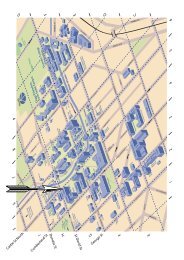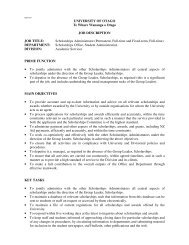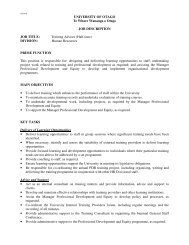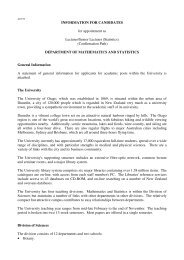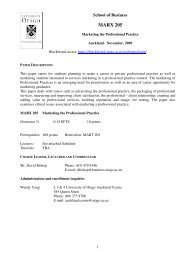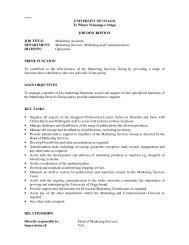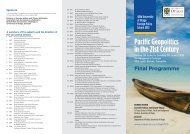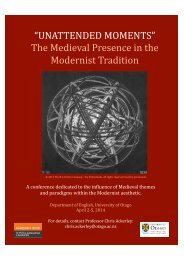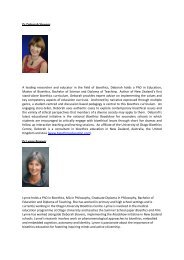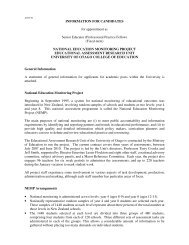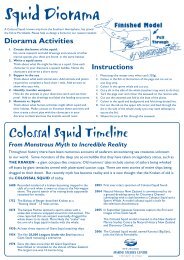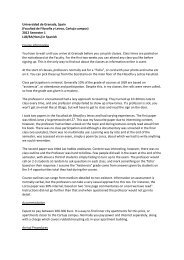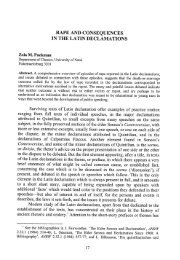CREATIVE IMITATIONS AND APPROPRIATIONS - University of Otago
CREATIVE IMITATIONS AND APPROPRIATIONS - University of Otago
CREATIVE IMITATIONS AND APPROPRIATIONS - University of Otago
You also want an ePaper? Increase the reach of your titles
YUMPU automatically turns print PDFs into web optimized ePapers that Google loves.
Creative Imitations and Appropriations:<br />
From Cinematic Adaptations to Re-makes<br />
Research Colloquium<br />
18-19 February 2011<br />
Sponsored by the Division <strong>of</strong> Humanities Research Network Film, Media and Literature and the<br />
Centre for Research on National Identity, <strong>University</strong> <strong>of</strong> <strong>Otago</strong><br />
The topic <strong>of</strong> adaptation has gained renewed attention and relevance in the last<br />
ten years especially due to the constantly changing landscape <strong>of</strong> film and media<br />
technology. The recent shift from analogue to digital technology has spurred<br />
much heated controversies about the nature <strong>of</strong> cinema, and the relations<br />
between textual and visual narratives, while promoting re-conceptualizations <strong>of</strong><br />
media specificity as far as both practices <strong>of</strong> production and consumption (forms<br />
and experiences <strong>of</strong> viewing) are concerned.<br />
The relevance <strong>of</strong> such debates internationally is evinced first in the conspicuous<br />
publication <strong>of</strong> key volumes devoted to such paradigm shifts (e.g., Reinventing<br />
Film Studies, 2000; Kamilla Elliott’s Rethinikng The Novel/Film Debate, 2003;<br />
Linda Hutcheon’s Theory Of Adaptation, 2006). Secondly multifarious<br />
approaches to adaptation – including within this rubric novel concepts <strong>of</strong><br />
translation as well as remakes – have been a recurrent subject <strong>of</strong> investigation at<br />
several main conferences (Modern Language Association, USA; German Studies<br />
Association, USA; American Comparative Literature Association, USA; Popular<br />
and American Culture Association, USA etc.). Finally, and most important,<br />
journal issues as well as entire refereed journals have sprung around the reinvented<br />
field <strong>of</strong> adaptation studies (i.e., Gegenwartsliterature, vol 7 (2008); and<br />
the new journal, Adaptation, edited by Deborah Cartmell, Timothy Corrigan and<br />
Imelda Whelehan, and published by Oxford <strong>University</strong> Press).<br />
Against this theoretical and historical backdrop, our colloquium investigates how<br />
adaptation – in its broadest meaning and function – becomes a key medium <strong>of</strong><br />
expression to register cultural shifts, such as those concerning, among others,<br />
national belonging, gender boundaries, generational relations, and literary<br />
canons.<br />
Convenors: Cecilia Novero, Hilary Radner<br />
Co-Convenors: Ellen Pullar, Erica Todd<br />
1



